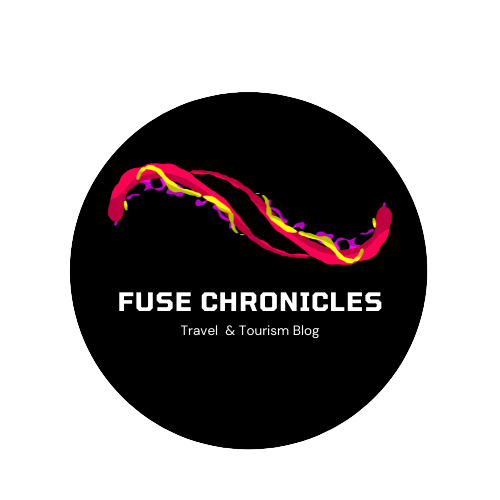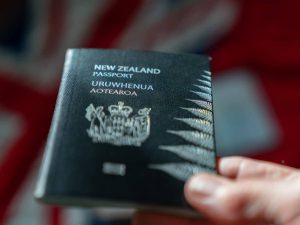Jetlag, medically referred to as desynchronosis, is a temporary sleep disorder that occurs when an individual’s internal body clock, or circadian rhythm, is disrupted due to rapid travel across multiple time zones. This disruption leads to a misalignment between the body’s natural rhythm and the external environment, resulting in various physical and cognitive symptoms.
Related article: The Ultimate Ranking of Airports In The UK: Best to Worst
Related article: How to transfer your credit score when you immigrate to Canada
This happens when you travel across multiple time zones quickly, like flying from New York to London. Your body’s internal clock, or circadian rhythm, gets out of sync with the local time. That leads to symptoms like fatigue, insomnia, difficulty concentrating, maybe even digestive issues. Below is a comprehensive guide and strategies to overcome It.
Causes Of Jetlag
The primary cause of jetlag is the rapid crossing of time zones, which leads to a mismatch between the body’s internal clock and the local time at the destination. The circadian rhythm regulates sleep-wake cycles, hormone release, and other bodily functions. When this rhythm is disrupted, it can result in symptoms associated with jet lag.
Disruption Of The Circadian Rhythm
It’s a 24-hour cycle that regulates sleep, hunger, body temperature, and other bodily functions. It’s primarily influenced by light and darkness. So when you suddenly change time zones, your body is still operating on the old schedule. For example, if you fly east, you lose time, and your body might still think it’s earlier, making it hard to fall asleep at the local bedtime. Conversely, flying west, you gain time, so you might feel sleepy earlier than the local time.
Melatonin Disruption
There’s the role of melatonin, the hormone that helps regulate sleep. Light exposure affects melatonin production. So, if you’re exposed to light at times when your body isn’t used to it, it can disrupt melatonin release, further messing up your sleep cycle.
Direction Of Travel
Traveling eastward, which shortens the day, often causes more severe jet lag than traveling westward, which lengthens it. This is because it’s generally easier for the body to extend its day than to shorten it.
Time Zone Crossed
Also, time zones crossed. Crossing more zones means more severe jet lag. The more time zones traversed, the more pronounced the jet lag symptoms are likely to be.
Individual Age Differences
Age could be a factor; older people might have more trouble. Fitness level, overall health, direction of travel (east vs. west), and how well someone prepared before the trip. Also, the cabin environment—low humidity, pressure, sitting for a long time—might exacerbate symptoms.
Symptoms Of Jetlag
Jet lag manifests through a variety of symptoms, which can vary in intensity based on individual differences and the specifics of travel. Common symptoms include:
- Sleep Disturbances: Difficulty falling asleep, waking up too early, or experiencing fragmented sleep.
- Daytime Fatigue: Persistent tiredness and lethargy during waking hours.
- Cognitive Impairment: Difficulty concentrating, memory lapses, and reduced alertness.
- Mood Changes: Irritability, mood swings, and feelings of unease.
- Gastrointestinal Issues: Indigestion, constipation, or diarrhea, this is mainly because meal times are off.
- General Malaise: A sense of not feeling well, which can include headaches and a lack of appetite.
These symptoms typically appear within a day or two after travel and can last several days. The duration often depends on the number of time zones crossed; generally, it takes about a day to recover for each time zone traversed.
How Long Does Jetlag Last?
It depends on the number of time zones crossed. Maybe a day per time zone? So crossing six time zones would take about six days to adjust? But maybe there are ways to speed that up.
How To Beat Jetlag
There are varying strategies to overcome jetlag before, during, and after the flights, so getting over the effect depends on what phase you are currently in.
Before Traveling
Gradually adjusting sleep schedules. If going east, go to bed earlier a few days before; if west, later. Maybe using light therapy—exposing oneself to light in the morning when traveling east to reset the clock. Avoiding caffeine and alcohol before and during the flight, as they can dehydrate and disrupt sleep.
During The Flight
Staying hydrated, moving around to prevent stiffness, adjusting watches to the destination time to start mentally acclimating. Maybe using sleep aids like eye masks or earplugs to get rest on the plane. Some people take melatonin supplements to help adjust their sleep cycle.
After Arrival
Adapting to the local schedule immediately. Exposing oneself to natural light during the day to suppress melatonin and help reset the circadian rhythm. Taking short naps if necessary but not too long to avoid interfering with night-time sleep. Eating meals according to local time to help the body adjust. Maybe exercising lightly to boost energy and promote sleep at night.
Strategies To Overcome Jetlag
While jetlag is a common travel-related issue, several strategies can help mitigate its effects and facilitate a smoother adjustment to new time zones.
Light Exposure Management
Light exposure is a powerful regulator of the circadian rhythm. Proper timing of light exposure can aid in adjusting your internal clock to the new time zone. After traveling east, expose yourself to morning light to help your body adjust to an earlier time zone.
After traveling west, expose yourself to light in the evening to help you adjust to a later time zone. If you’ve travelled more than eight time zones to the east, wear sunglasses and avoid bright light in the morning. Then allow as much sunlight as possible in the late afternoon for the first few days in your new location.
Melatonin Supplementation
Taking melatonin can aid sleep during times when you wouldn’t typically be resting, making it beneficial for people with jet lag. The timing of melatonin is important. If you’ve flown east and need to reset your internal clock to an earlier schedule, take melatonin nightly in the new time zone. If you’ve flown west and need to reset your body’s internal clock to a later schedule, take melatonin in the mornings in the new time zone until you adjust.
Before using melatonin, consult with a healthcare provider to determine the appropriate dosage and timing, as individual needs can vary.
In-Flight Strategies
Stay Hydrated: Drink plenty of water before, during, and after your flight to counteract the effects of dry cabin air. Dehydration can make jet lag symptoms worse. Avoid alcohol and caffeine, as these can dehydrate you and affect your sleep.
Sleep Management: Align your in-flight sleep with the destination’s night-time. Use earplugs, eye masks, and comfortable clothing to facilitate rest.
Physical Activity: Periodically stand, stretch, and move around during the flight to promote circulation and reduce stiffness.
Post-Arrival Practices
Upon arrival, immediately adjust to the local time for meals and sleep. This means eating meals and going to bed at the local times, even if you’re not hungry or tired.
Avoid long naps during the day. If necessary, take short naps (20-30 minutes) to alleviate excessive sleepiness without hindering night-time sleep.
Some studies suggest that consuming a substantial breakfast after arrival can help reset the body’s internal clock.
Pharmacological Interventions
In some cases, short-term use of sleep aids may be considered to manage jet lag symptoms. However, these should be used cautiously.
Hypnotic Medications: Medications like zolpidem have been shown to improve sleep quality and reduce awakenings for people traveling across multiple time zones.
Precautions: Be aware of potential side effects, such as amnesia and confusion. It’s advisable to test any sleep aid prior to travel to understand its effects.
Alternative and Emerging Strategies
In addition to traditional methods, recent research has identified novel approaches to mitigating jet lag symptoms:
Prebiotics and Gut Health
Emerging evidence suggests that maintaining a healthy gut microbiome can play a role in reducing the effects of circadian rhythm disruptions, such as jet lag. Prebiotics—dietary fibers that nourish beneficial gut bacteria—have been shown to promote resilience against such disruptions. A study from the University of Colorado Boulder found that animals consuming a diet rich in prebiotics adjusted more quickly to changes in light cycles, indicating potential benefits for travellers.
Incorporating Prebiotics into Your Diet
Foods high in prebiotics include Jerusalem artichokes, chicory, garlic, onions, leeks, asparagus, and bananas.
Prebiotic supplements are available in various forms, such as powders and gummies. It’s essential to choose products with minimal added sugars and high fiber content. Consult with a healthcare provider before starting any new supplement regimen.
Dietary Considerations
Aligning your eating patterns with the destination’s local time can aid in adjusting your internal clock. In the days leading up to your flight, consider shifting your meal times to match those of your destination. Upon arrival, eat meals at local times, even if you’re not hungry, to help reset your body’s rhythm.
Physical Activity
Engaging in regular exercise can help regulate your circadian rhythm and reduce jet lag symptoms. Physical activity stimulates the production of melatonin and promotes deeper, more restful sleep. Upon arrival, consider light exercises such as stretching or a brisk walk, preferably outdoors to combine the benefits of physical activity and natural light exposure.
Its also important to note that individual differences matter. This is because some people adjust quicker than others. Tips for frequent travellers, like pilots or business people, might include maintaining a consistent routine or using apps such as jetlag calculator that help track and adjust sleep schedules.
Foods That May Aid Sleep
Tart Cherry Juice: Contains high levels of melatonin, a hormone that regulates sleep-wake cycles. Consuming tart Montmorency cherry juice before a long-haul flight and at bedtime in your destination may help prevent jet lag.
Kiwi: Rich in antioxidants and serotonin, kiwi has been linked to improved sleep quality. Including kiwi in your diet may support better sleep during travel.
Possible Mistakes
- Taking long naps upon arrival, could hinder adjustment
- Overusing sleep medications
- Not adjusting to local time immediately
Jetlag vs. Travel Fatigue
It’s important to state the difference between jetlag and travel fatigue, because most people mistake the two conditions to mean the same thing. They are not. Travel fatigue is just tiredness from the journey, but jetlag is specifically circadian disruption. So, even without crossing time zones, long travel can cause fatigue, but jet lag requires time zone change.
It is also worth noting that children handle jetlag differently and shift workers handle it better than most because they are used to changing schedules, so can adapt better.
Conclusion
Jet lag is a common challenge for travellers crossing multiple time zones, resulting from the misalignment between the body’s internal clock and the external environment. Understanding the causes and symptoms of jet lag is crucial for implementing effective strategies to mitigate its effects.
Traditional methods, such as gradual schedule adjustments, light exposure management, and melatonin supplementation, have been widely used to combat jet lag. Emerging strategies, including the incorporation of prebiotics to support gut health, dietary adjustments, and regular physical activity, offer additional avenues to enhance resilience against circadian disruptions.
By adopting a comprehensive approach that combines these strategies, travellers can minimize the impact of jet lag, ensuring a more comfortable and productive experience in new time zones.












One Response